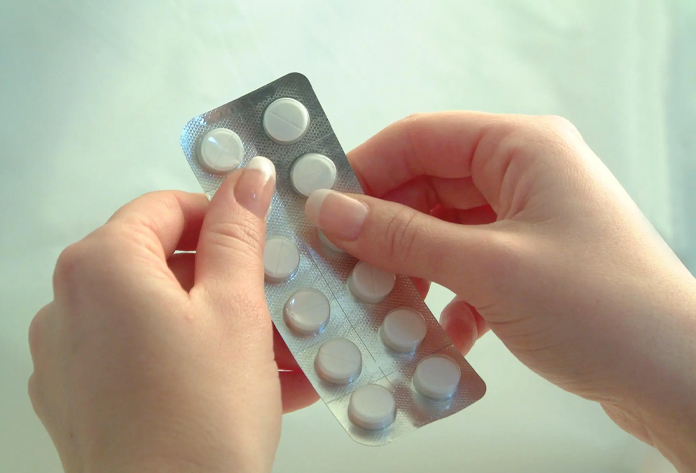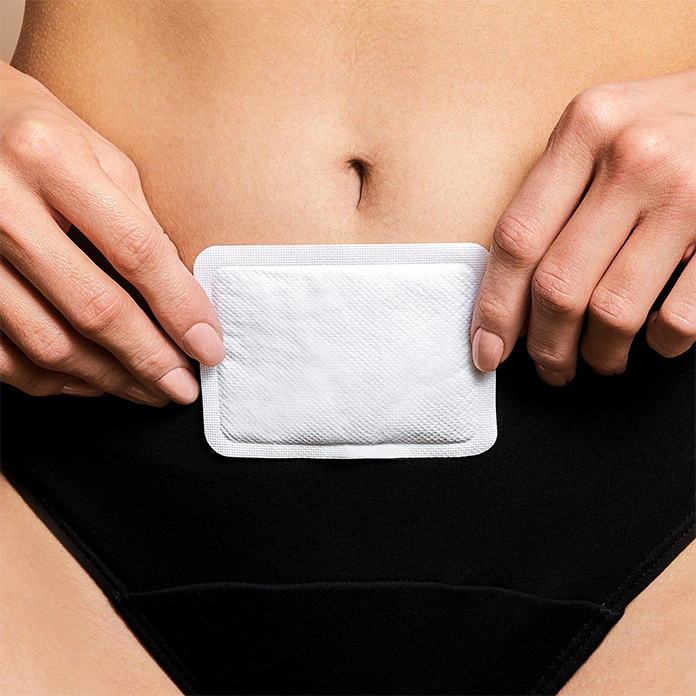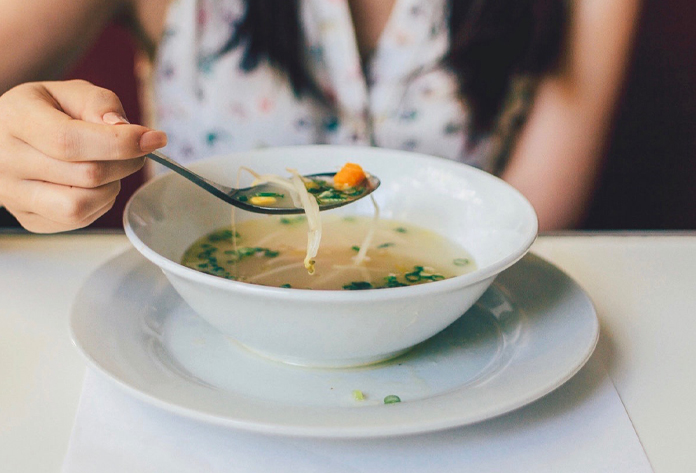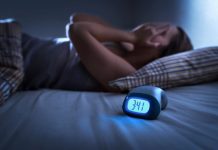
Cramps are the absolute worst part of your cycle. You could be in so much agony and pain that you could miss out on work, school, or even social gatherings. Luckily, there are a few things you can do to alleviate part of the discomfort and endure those few hours or days pain-free.
How Can You Relieve Period Cramps?
Estrogen and progesterone levels fall during the week before your period. Many experts think that a drop in hormone levels causes PMS symptoms. Changes in brain chemistry or a lack of certain vitamins and minerals may also be factors. Too much salt, alcohol, or caffeine may also aggravate symptoms.
Medication for Period Cramps
If you often suffer from severe premenstrual syndrome, keep a pack of period pain tablet by your bedside as soon as you notice the first indications of period cramps. These drugs can help with inflammation, discomfort, and menstrual cramps. It is important to follow the dosage instructions on the container and consult a doctor if the prescribed dose does not relieve your pain.

Nonsteroidal anti-inflammatory medications (NSAIDs) are useful in the treatment of period discomfort. This period pain tablet inhibits the synthesis of prostaglandins, the chemical responsible for period discomfort. Anti-inflammatory pain relievers, particularly diclofenac, ibuprofen, and naproxen, are frequently used to treat period discomfort. Many NSAIDs are accessible without a prescription from pharmacies.
Certain versions of oral contraceptive pills have been shown to be beneficial in the treatment of period discomfort. Synthetic progestins in estrogen-progestin contraceptives inhibit ovulation and cause the endometrium to shrink. Arachidonic acid, the substrate for most prostaglandin production, is present in relatively modest levels in the thin endometrium. Because of these modifications, estrogen-progestin contraceptives diminish uterine bleeding flow and uterine contractions that occur during flow.
Acetaminophen is a viable option for individuals who have medical contraindications to or intolerance to NSAIDs but still require medication for pain management. Although a preceding meta-analysis found that NSAID therapy was more effective than acetaminophen in decreasing pain, it does not generally cause severe gastrointestinal side effects.

Use a Heat Patch
Applying a heating pad, heat blanket, or hot water bottle to your belly will help relieve period cramps. These products may be purchased at a pharmacy or online. For the treatment of dysmenorrhea discomfort, constant use of heat may be as effective as ibuprofen. Heat aids in the relaxation of muscles. One research of women aged 18 to 30 with primary dysmenorrhea discovered that those who used a heat patch heated to 104 degrees Fahrenheit received similar pain reduction benefits as those who depended on ibuprofen for cramps. If you don’t have a heating pad, heat wrap, hot water bottle, or heat patch on hand, you can take a hot shower or a warm towel instead.
Avoid Caffeine and Salty Foods
Consuming certain foods and drinks immediately before or during your period may make your symptoms, such as cramping and bloating, more difficult to manage. Although limiting your intake of certain foods and beverages may make your period more tolerable, if your symptoms are really severe or difficult to control, you should consult your doctor.
Caffeine should be avoided shortly before and during your period since it might increase the number of cramps you feel and induce blood vessel constriction, which can further aggravate cramps during your period. And salty foods should be avoided during your period since they might aggravate bloating and water retention. She advised that if you want to prevent exacerbating your symptoms, you should limit your intake of high-sodium meals around a week or two before your period is due to begin.

Adding Herbs to Your Diet
Herbs may be prescribed by a doctor to relieve a woman’s menstrual cramps. Some herbs that have been utilised include black cohosh, cramp bark, turmeric, and chaste berry. They are excellent at relieving pain and reducing inflammation. Chasteberry has traditionally been used to treat menstrual irregularities, cyclical breast pain, premenstrual syndrome, and dysfunctional uterine haemorrhage. Because herbs are not suited for every woman, make sure your doctor is aware of all of your medical problems, medicines, and supplements. Herbs may interact with or reduce the efficacy of some medicines.
When you menstruate, sipping camomile tea may help decrease cramping. Chamomile tea has anti-inflammatory compounds that suppress prostaglandins. Prostaglandins are produced by cells in the uterine endometrium. During a woman’s menstruation, these cells produce prostaglandins, which cause uterine muscular spasms, discomfort, and cramping. During the menstrual cycle, prostaglandins in the bloodstream cause nausea, vomiting, diarrhoea, and headache. Prostaglandin production is reduced by NSAIDs such as naproxen and ibuprofen. Chamomile tea reduces period pain by inhibiting pain-causing prostaglandins and increasing menstrual flow.
Stay Hydrated
Menstrual cramps, also known as primary dysmenorrhea, are an unpleasant monthly occurrence for many women. Drinking extra water may help relieve bloating, which exacerbates symptoms. Make it a habit to drink 6 to 8 glasses of water every day, particularly during your period. To make it more appealing, add some mint or a lemon wedge. While you’re at it, cut back on salt, which promotes fluid retention and bloating. Avoid alcohol, which dehydrates you. Menstrual cramps might be accompanied by diarrhoea or vomiting in some women. It is critical to replenish lost fluids by drinking plenty of water.

If you dislike the taste of plain water, there are several ways to improve your hydration consumption. Begin by drinking a glass of fruit-infused water as soon as you wake up in the morning. Take a sip of camomile or ginger tea. Drink flavoured mineral water to add a fresh twist to your hydration routine. For a spa-like experience, make a pitcher of cucumber, mint, or lemon water to drink throughout the day. To improve your fluid intake, drink a cup of low sodium broth. Staying hydrated is beneficial not just to cramps, but also to your general health.
Try Essential Oils
Another alternative for period pain relief is to try essential oils, which are simple to use if you already have them on hand. Menstrual cramps may be relieved by massaging your belly with essential oil for as little as 5 minutes each day. Massage promotes blood flow. Essential oils including clary sage, lavender, and marjoram provide extra health advantages. Many people have found that these oils include ingredients that assist alleviate pain and calm dysmenorrhea.















